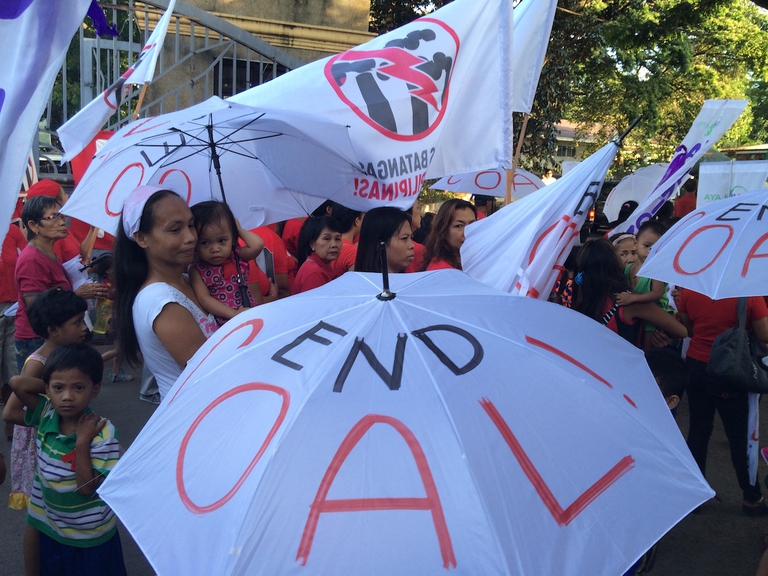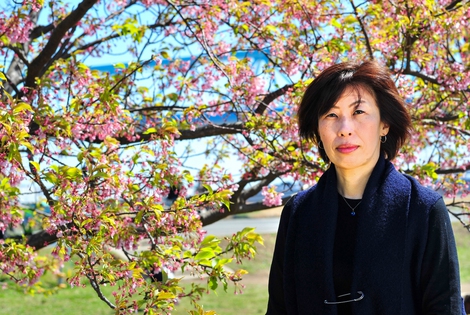
Three people putting the protection of the planet before themselves. Three powerful stories from Latin America, the deadliest region for environmental activists.
Environmental activist Gloria Capitan opposed the construction of coal stockpile facilities. She was shot in a bar in the province of Bataan on 4 July.
Her name was Gloria Capitan, she was 57 years old, and she has been fighting against the construction of a new coal plant for a long time in her country, Philippines. She has been killed on 4 July: she was shot in the head, while she was in a bar with her family.
According to the police, nobody has been arrested yet for the murder. Which confirms that the Philippines is one of the most dangerous countries in the world for environmental activists. According to the non-governmental organisation Global Witness, indeed, in the Asian nation 33 environmentalists have been killed in 2015 alone. And most of the times the perpetrators of these crimes are unpunished, that’s why people talk about the “culture of impunity”.
The NGO remembered in a report that as many as 185 environmentalists have been killed in sixteen countries last year, twice the amount of journalists that have been murdered in the same period. The most dangerous country for those who defend the environment is Brazil, with 207 environmental activists killed between 2010 and 2015.
Gloria Capitan led a group of activists who stood up against plans for coal stockpiles and a coal-fired power plant in Mariveles, in the province of Bataan, some sixty kilometres away from Manila. “Her untimely passing is a significant loss to the coal-free movement”, Reuben Muni, Greenpeace campaigner, said.
“If the murder of Gloria is a message to silence other anti-coal activists like her, then they are mistaken” said Val De Guzman, a campaigner for the Philippine Movement for Climate Justice. “Because on the ground where her body fell, more anti-coal activists will sprout. Instead of silencing us, it will only strengthen our convictions. The evil menace of coal must end”.
Few days after Gloria Capitan’s death, another environmental activist has been killed in Honduras. Lesbia Janeth Urquía, 49, whose corpse has been found in a landfill in the municipality of Marcala, about 160 kilometres to the west of the capital Tegucigalpa. The woman would have been killed with a machete blow to the head. She was fighting against the construction of a dam on the Chinacla river.
Siamo anche su WhatsApp. Segui il canale ufficiale LifeGate per restare aggiornata, aggiornato sulle ultime notizie e sulle nostre attività.
![]()
Quest'opera è distribuita con Licenza Creative Commons Attribuzione - Non commerciale - Non opere derivate 4.0 Internazionale.
Three people putting the protection of the planet before themselves. Three powerful stories from Latin America, the deadliest region for environmental activists.
Influential scientist, activist and author Vandana Shiva fights to protect biological and cultural diversity, and against GMOs.
Kimiko Hirata has blocked 13 new coal plants in Japan, but she hasn’t done it alone. The 2021 Goldman Prize winner tells us about her movement.
The Goldman Environmental Prize, the “green Nobel Prize”, is awarded annually to extraordinary activists fighting for the well-being of the planet.
We talk to Shaama Sandooyea, activist and marine biologist from Mauritius onboard Greenpeace’s Arctic Sunrise ship in the heart of the Indian Ocean.
Arrested for supporting farmers. The alarming detention of Disha Ravi, a 22-year-old Indian activist at the fore of the Fridays for Future movement.
Water defender Eugene Simonov’s mission is to protect rivers and their biodiversity along the borders of Russia, China and Mongolia.
Chibeze Ezekiel, winner of the 2020 Goldman Environmental Prize for Africa, is fighting to guide new generations towards a renewable future.
Leydy Pech, winner of the 2020 Goldman Environmental Prize for North America, is the beekeeper who defended Mexican Maya land against the agro-industry.








